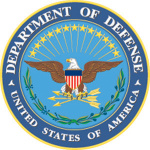- Settore: Government; Military
- Number of terms: 79318
- Number of blossaries: 0
- Company Profile:
Items that can be used directly by the armed forces to carry out combat missions and that cost more than $100,000 or for which the eventual total procurement cost is more than $10,000,000. That term does not include commercial items sold in substantial quantities to the general public.
Industry:Military
A method used to encapsulate the overall performance of a BMD system that plots the probability of survival on the vertical axis versus the number of attacking RVs on the horizontal axis. Used in conjunction with attack price, they are the most important expressions of a BMD capability.
Industry:Military
Scientific or technical information recorded in any form or medium (such as manuals and drawings). Computer programs and related software are not technical data; documentation of computer programs and related software are. Also excluded are financial data or other information related to contract administration.
Industry:Military
Fundamental principles that guide the employment of forces of two or more Services in coordinated action toward a common objective. It will be promulgated by the Chairman of the Joint Chiefs of Staff, in coordination with the combatant commands, Services, and Joint Staff. See also Chairman, Joint Chiefs of Staff.
Industry:Military
A hypothetical technique for overcoming a terminal phase missile defense. Successive salvos of salvage-fused RVs attack. The detonations of one salvo disable local ABM abilities so that following salvos are able to approach the target more closely before being, in turn, intercepted. Eventually, by repeating the process, the target is reached and destroyed.
Industry:Military
A reference to Paul Nitze, the Reagan Administration’s chief arms control negotiator, and his vocalization of the goal of the SDS as the achievement of raising the attack price where the defense cost is measured at the margin, not the total cost. Congress established the Nitze criteria as conditions of deploying an SDS in Section 222 of the National Defense Authorization Act for FY 1986.
Industry:Military
A mechanical shock wave at the surface of an object exposed to intense pulsed electromagnetic radiation. A thin layer of the object's surface violently and rapidly boils off; the resulting vapor suddenly exerts pressure against the surface, generating a pressure wave at the surface. This shock wave then propagates through the material and can cause melting, vaporization, spallation, and structural failure of the object.
Industry:Military
The electromagnetic radiation, mainly in the soft (low energy) x-ray region, emitted by the nuclear weapon residue by virtue of its extremely high temperature; it also is referred to as the primary thermal radiation. It is the absorption of this radiation by the ambient medium, accompanied by an increase in temperature, which results in the formation of the fireball (or other heated region) which then emits thermal radiation.
Industry:Military
